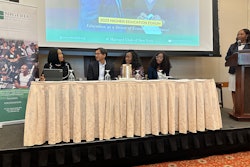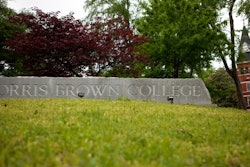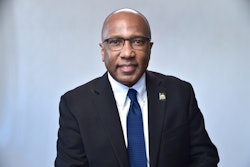Discovering Heritage and More by Studying Abroad
The argument frequently made to encourage students to study abroad is that it is a chance to learn about a different culture. Study abroad is a time for discovering something new about people with different values, a different language and a different lifestyle. But many students who study abroad are looking for a foreign destination that isn’t too foreign.
Heritage seeking, as it has come to be called, is study abroad for the purpose of learning about one’s own ethnicity. Rather than choosing to study somewhere that is different and unfamiliar, a large number of U.S. students choose to study in countries where their families have roots.
For example, virtually all of the American participants in the College Consortium for International Studies program in Israel are Jewish. Likewise, Christine Beitl of the College of Staten Island reports that about half of the participants in their program in Greece state that they “want to get in touch with their Greek heritage.” The College of Staten Island also operates a program in Nanjing, China, and roughly 20 percent to 25 percent of the students enrolled in that program are Chinese American. Here at Brethren Colleges Abroad, the number of students with Hispanic surnames who enroll in our study abroad program in Barcelona, Spain, is about 10 percent each semester, double the normal rate of Hispanic enrollment in study abroad programs. A study by Beatrice Szekely of Cornell University in 1997 found that heritage seeking also is an important motivation for student participation in programs in Poland, Egypt, Ireland and Korea.
Heritage seeking also is a motivation for African American students. Some 23 percent of participants in study abroad programs in Africa are African Americans, even though African Americans make up only 3 percent of U.S. study abroad participants elsewhere. Destinations in the Caribbean also attract many African American students hoping to find some connection with the population there.
But heritage seeking is not always what students bargain for. Often, it is more difficult to find a special bond of ethnicity with people in another country than students would like. Many Korean Americans who have grown up in the United States and only speak English, for example, find that Koreans in Korea view them with some suspicion. Likewise, African Americans, so long severed from their linguistic and cultural roots in Africa, often find they have more in common with their White classmates than their African hosts. Many Black, White or
Hispanic students who study abroad come to realize that people in other countries view them simply as Americans.
Not that this should discourage students from seeking their heritage through study abroad. On the contrary, even if students don’t discover the ethnic roots they were looking for, study abroad can still be an enriching experience. Study abroad can help to break idealized or over-simplified stereotypes of other countries. The experience also can push students to take a critical look at U.S. culture by examining it from
another country’s perspective. It can be a time to rethink assumptions about what it means to be an American.
Indeed, the experience of not finding one’s heritage abroad can be just as enlightening as finding it. Students who want to go abroad to find their ethnic roots should be encouraged to do so. But they also should be prepared to learn something different about themselves than what they set out to find. n
R. Alex Neff is a program officer for Brethren Colleges Abroad
|in North Manchester, Ind.
© Copyright 2005 by DiverseEducation.com





















